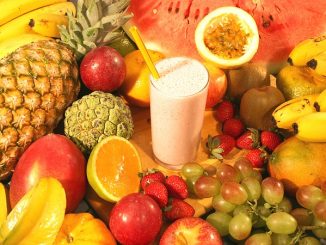
When thinking about going on a diet or even just changing it to a healthier one, there are, of course, those foods that you instinctively think you’ll have to eat less of, or maybe even totally eliminate from your daily menu because you know ‘they’re not good for you’. The question you have to ask, however, before you totally forget about those ‘unhealthy stuff’ is this: are you sure those are really bad for you?
Here is a list of foods that you don’t have to deprive yourself of because they just have the misfortune of having a ‘bad reputation’ but the truth is, they’re not actually bad for you.
Alcohol
Too much of it is bad, that’s true for a lot of reasons. But drinking it in moderation (2 drinks daily for men, and one drink daily for women) can provide surprising health benefits including reducing the risk for heart attack, heart disease, certain kinds of cancer, and type-2 diabetes.
Chocolate
Because it tastes so good, it must be bad for you, right? Wrong! Based on a study done, adults who ate a modest amount of chocolate actually had a lower BMI (body mass index) than those who hardly ate any at all. Also, dark chocolate, which has lots of antioxidants, it’s actually quite good for your heart. If eaten in small amounts, two or three times each week, dark chocolate can help improve the blood’s flow, prevent the formation of blood clots and may help restore flexibility to arteries.
Coffee
The ‘old school thinking’ that coffee is linked with cancer, heart disease and stunted growth has been set straight. Aside from having caffeine which perks you up and keeps you alert, coffee is actually one of the best sources of flavonoids which are known for their heart-health and anti-aging benefits. Drinking a moderate amount (about 3 – 4 cups a day) can also help lower the risk for Alzheimer’s disease, Parkinson’s disease and Type-2 diabetes.
Eggs
For the longest time, eggs were believed to be loaded with fat and eating a lot of them would send your cholesterol levels soaring, increasing your chances of developing heart disease. The truth is — although eggs contain a lot of cholesterol, it won’t necessary translate to blood in your cholesterol (which is what’s bad). On the contrary, it actually contains a lot of other important nutrients that can help lower your risk for heart disease.
Fried Foods
Because frying necessarily requires oil, it’s easy to conclude that fried foods are unhealthy. And many truly are. But if the oil used for frying is the healthy kind (like olive oil or sunflower oil), fried foods won’t be that bad for you. And it’s especially because certain vitamins (A, D, E and K) and minerals (beta-carotene, lycopene, lutein and zeaxanthin) need fat to be absorbed by the body. So by eating food fried in healthy oil, you’re actually helping your body absorb some much needed nutrients.
Gluten
Gluten-free diets have become so popular and many believed that avoiding gluten is healthy. As it turns out, going gluten-free only benefits those who have gluten intolerance and those who have celiac disease. For everyone else, eating foods with gluten (such a barley, rye and wheat) helps reduce the risk for cancer, diabetes and heart disease.
Nuts
Nuts are high in fats, but not the bad kind. In fact, the healthy fats and protein that nuts contain can help reduce the risk of heart attack and stroke. Eating nuts, particularly raw tree nuts, such as almonds, cashews and walnuts, which have been linked to lower cholesterol and even a lower cancer risk, can actually even help you lose weight.
Pasta
Pasta that’s made from white durum wheat has a low glycemic index (45-50), which means it won’t raise blood sugar level as believed. The key is in limiting your intake to not more than 1 cup of cooked pasta.
Peanut Butter
We’ve been used to the idea that peanut butter contains too much fats and calories, which means it can’t be good for us. New studies have debunked this common belief — just because it has a lot of fats, it doesn’t mean it’s fattening. Peanut butter is in fact packed with healthy fats that can help your body absorb important nutrients from other foods better. It can also help stave off hunger, manage your weight and lower your risk for type-2 diabetes. Opt for those made from natural almond, cashew or peanut — no add-ons (like sugar), just pure nuts. And limit your intake to no more than two tablespoons in a day.
Potatoes
What makes potatoes unhealthy is the way it is prepared and served. For example, French fries and potato chips aren’t good for you. But baked, grilled or roasted potatoes are quite beneficial health-wise. Potatoes are a good source of vitamin B6, vitamin C, iron, magnesium, potassium, folate and fiber. Potato skin is also abundant in antioxidants that help with heart health and have anti-cancer benefits. And last but not least, potatoes are a great source of carbohydrates that can keep you feeling full longer.
Red Meat
Some are unhealthy and are indeed bad for your heart, but some, i.e. beef, lamb and pork, are not. For instance, extra lean meat that’s almost fat free can provide you with a protein-packed meal that’s also high in vitamin B6, B12, iron, magnesium, phosphorus and zinc.
Soy
Similar with potatoes, what makes soy bad is the way you eat it: processed isn’t good, natural is. In other words, if you eat soy in its ‘whole’ form — like edamame, tofu and miso — you’ll be reaping benefits such as reduced risk for certain cancers (breast, colon and prostate) and improved heart health.



Leave a Reply